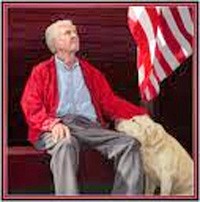See also Part Two of Thoughts on the August 5 Outcome: “Failure to Communicate”>

One fact unites all the diverse threads of the elections that concluded on August 5: High Republican turnout, plus suppressed black Democratic turnout.
And no, I’m not getting into conspiracy theories about the voter-roll snafu that occurred Thursday and forced a few thousand citizens to work hard in order to avoid being disenfranchised. Apropos that: I’m not a guillotiner, but somebody’s head needs to roll. Feeding wrong voter data into the county rolls, system-wide? That’s inexcusable! And it’s hard to blame Van Turner, Randy Wade, and other affected Democrats who are (a) suspicious; and (b) ready to litigate.
I’m actually referring to the (apparently) lower-than-usual voluntary turnout of African American Democrats. That may be anecdotal, or it may be factual. I’m assuming the latter. What I do know, from personal observation (an hour-long line at my Cordova poll at quitting time on election eve!), is that whites and Republicans (somewhat overlapping categories) turned out in droves.
That accounts for the Republican sweep of countywide offices. It accounts for the judgeship results — except for Lorrie Ridder, an extremely hard-working candidate, white, upscale, seemingly very well liked and respected, who had money and good ads (by Stephen Reid), who was beaten by Gina Higgins (to be sure, another well-liked and respected and hard-working candidate), who was African American.
But let’s save the Ridder riddle for later. Back to the one dominating fact of the election. Republicans turned out! Their turnout even accounted — via some much ballyhooed crossover — for a good deal of Cohen’s 4 to 1 margin over Herenton. They failed to oust County Commissioner Steve Mulroy because (a) the 5th District incumbent is a driven, relentless, multi-tasking, highly personable, manifestly able performer, and(b) his opponent, the respected physician Rolando Toyos, was basically an Unknown Quantity politically and a no-show at active campaigning. That race was so idiosyncratic as to actually lie outside the curve.
So, ironically, in the year of the Second Great Republican Sweep in Shelby County (the first was in 1994), the Democrats would keep the 5th District swing seat on the county commission and hold their majority. (Don’t think this won’t turn out to be consequential!)
One of the members of that new commission (which is likely to be more ideologically riven than most of those in the recent past) is Chris Thomas, who gave up his Probate Court clerkship, presumably because of handwriting on the wall — regarding Democrats and demographics — that turned out to be written in disappearing ink. So general was that feeling that Paul Boyd, a likeable, back-bench GOP activist, and an African American to boot, claimed the Republican nomination for Probate for the asking. (Hell, Arnold Weiner could have won that seat!)
It was no secret that the Democrats needed a figure of 60 percent Democratic primary turnout to feel comfortable. By dint of some last-minute effort they were able to get their percentage of early voting up to 56 percent. But they also needed a major effort on Election Day, August 5, to close the rest of the gap, and it would seem that they were out-done by the Republicans on Thursday.
The falloff in the African-American vote was just modest enough, given a highly galvanized GOP effort, to determine the outcome.
And what happened? First, there was no one candidate or cause that could focus an intense countywide(or citywide or district-wide) effort involving blacks up and down the social constellation — certainly not Herenton with an under-funded erratic effort based on a slogan — “Just One” — that presupposed the existence of a barrier that had vanished long ago.
Here’s the reality: After Harold Ford Sr.’s congressional victory in 1974 and Herenton’s mayoral triumph in 1991, blacks in Memphis have been well aware that they can elect one of their own any time they choose. It was their call, not whites’, to reject Nikki Tinker and prefer Cohen so overwhelmingly in 2008. In that context, Herenton’s slogan was both irrelevant and insulting.
Both the white and black populations are now performance-oriented. White fans support and enthusiastically embrace the basically all-black basketball teams of the University of Memphis; black fans joined white fans in accepting and enthusiastically embracing (for better and for worse)the outcome-based coaching regime of John Calipari.
It was clear to the blacks of the 9th District that Cohen had been something of a whiz in Congress and that he had crossed the t’s and dotted the I’s that mattered to them. All other things being equal, they might have come out for Herenton, sure. Things weren’t equal. Cohen was a presence and a force. Herenton’s very campaign was a riddle never answered, and his mayoral regime was remembered, correctly, as having run out of gas.
So African-American voting was at comfort level. Meanwhile, recession-weary Tea Party whites, driven by resentments even they could not precisely name, came out to the polls to make their statement, such as it was, choosing the Republicans, the self-proclaimed party of “less government, lower taxes,” as their medium.
The one candidate who perfectly expressed the amorphousness of such protest was the perennial candidate Basil Marceaux, a candidate for governor this year, whose campaign promises included one to “make the flag fly right.” And the organized Republican Party faithful themselves were at fever pitch, initially motivated by the survival instinct and later by glimpsing the prospect of a miracle finish.
(To Be Continued)